Are you looking to make meaningful changes to your organization's board policies? Crafting a well-structured letter for policy revision can be key in ensuring clear communication and effective collaboration with all stakeholders involved. It's essential to articulate your thoughts and proposals in a way that resonates with the board members and fosters a productive dialogue. If you want to dive deeper into the best practices for writing a compelling revision letter, keep reading!
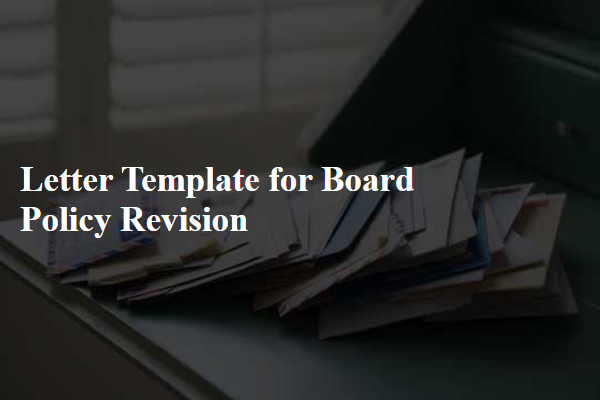
Purpose and Objective
The purpose of the board policy revision is to enhance organizational governance by establishing clear guidelines and frameworks for decision-making within the nonprofit sector. The objective focuses on aligning existing policies with contemporary legal standards and best practices, thereby promoting transparency, accountability, and operational efficiency. Specific areas of revision may include conflict of interest management, financial oversight protocols, and stakeholder engagement strategies, all aimed at fostering a culture of ethical leadership. This proactive approach not only addresses current challenges but also positions the organization for sustainable growth and compliance with federal regulations, such as the Internal Revenue Code (IRC) sections relevant to charitable organizations.
Summary of Proposed Changes
The proposed changes to the board policy, specifically the governance framework, aim to enhance transparency and accountability in decision-making processes. Key revisions include the introduction of quarterly financial reporting mechanisms for all departments, ensuring alignment with the fiscal year 2023 budget. Amendments to the conflict of interest policy will require board members to disclose any personal affiliations with vendors amounting to over $10,000 to mitigate potential biases. Additionally, the establishment of a diversity and inclusion committee seeks to promote equitable practices within board recruitment processes, thereby fostering a representative governance structure reflective of community demographics in Cityville. Finally, updated procedures for reporting unethical behavior emphasize the importance of whistleblower protections, allowing anonymous submissions through a designated online platform, improving overall organizational integrity.
Rationale for Revision
The rationale for revising board policy encompasses several critical factors that necessitate an update to ensure alignment with contemporary best practices, regulatory changes, and organizational goals. Recent incidents, such as data breaches affecting major corporations like Equifax in 2017, highlight the importance of robust governance structures. Changes in legislation, including the introduction of the General Data Protection Regulation (GDPR) in the European Union, require organizations to adopt more stringent data privacy measures. Stakeholder feedback collected during the annual review period from March to April 2023 indicates a demand for greater transparency and accountability in decision-making processes. Furthermore, emerging trends in technology and workforce dynamics necessitate a revision to promote inclusivity and adaptability. Ultimately, updating the board policy aims to enhance organizational efficacy, safeguard stakeholder interests, and ensure compliance with evolving legal frameworks.
Implementation Plan
Implementation plans for board policy revisions require structured coordination and clear timelines. Stakeholders include board members, administrative staff, and legal advisors. A timeline should outline specific phases, starting with a needs assessment conducted in schools, such as those in San Francisco Unified School District, followed by stakeholder engagement sessions scheduled for January 2024. Draft revisions should be circulated for feedback in February 2024, leading to a final draft by March 2024. Training sessions for staff to ensure understanding of new policies will occur in April 2024, with evaluations planned for the end of the school year, June 2024, to assess the effectiveness of implemented changes. Budget considerations must factor in resources for training and potential software updates.
Feedback and Approval Process
Revising board policies requires a structured feedback and approval process to ensure comprehensive stakeholder involvement. The draft policy document outlines modifications to governance frameworks that must be discussed in organizational meetings, such as quarterly board meetings held at the Central Administrative Office. Feedback should be solicited from key stakeholders, including department heads, legal counsel, and members of the executive committee, highlighting aspects of compliance with regulations like those set forth by the Sarbanes-Oxley Act. A designated feedback period of 30 days will allow for thorough analysis and input, culminating in a final review session where suggested changes can be integrated. Upon finalization, the revised policies must receive formal approval through a majority vote from board members in accordance with Robert's Rules of Order. This structured approach ensures transparency and alignment with strategic objectives while fostering a culture of collaborative governance within the organization.


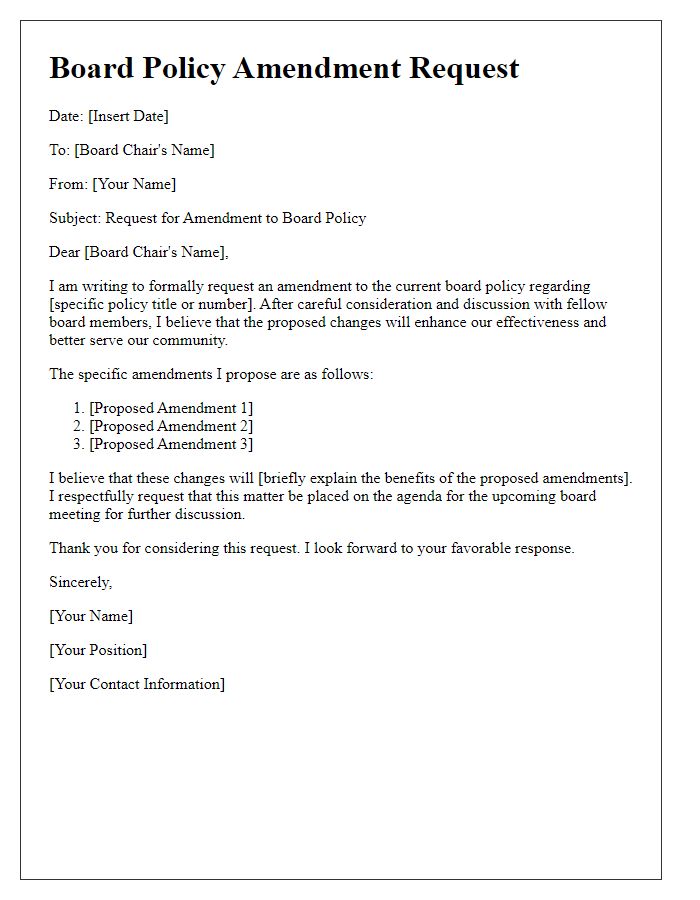
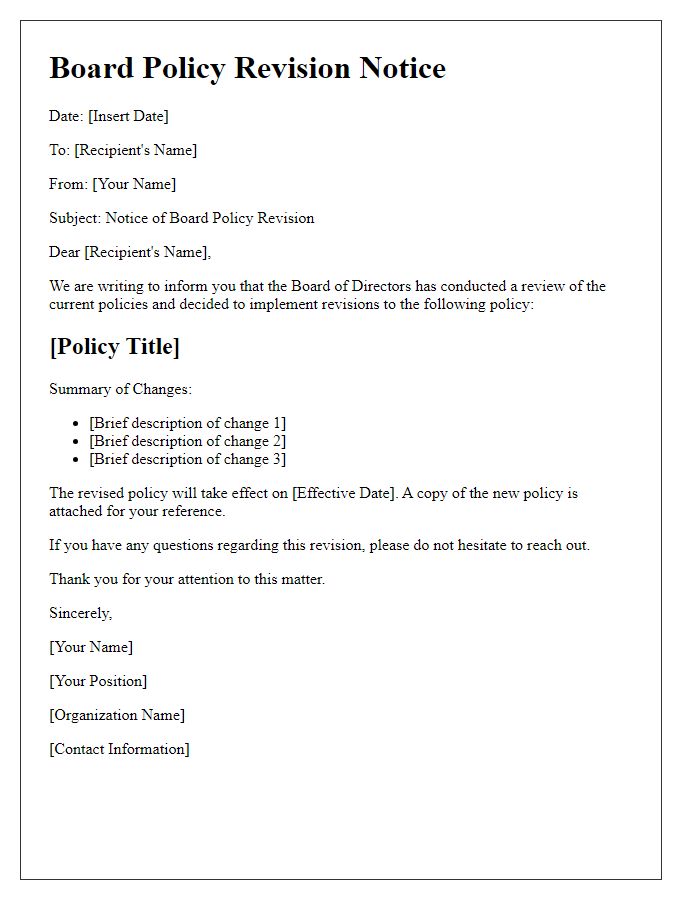
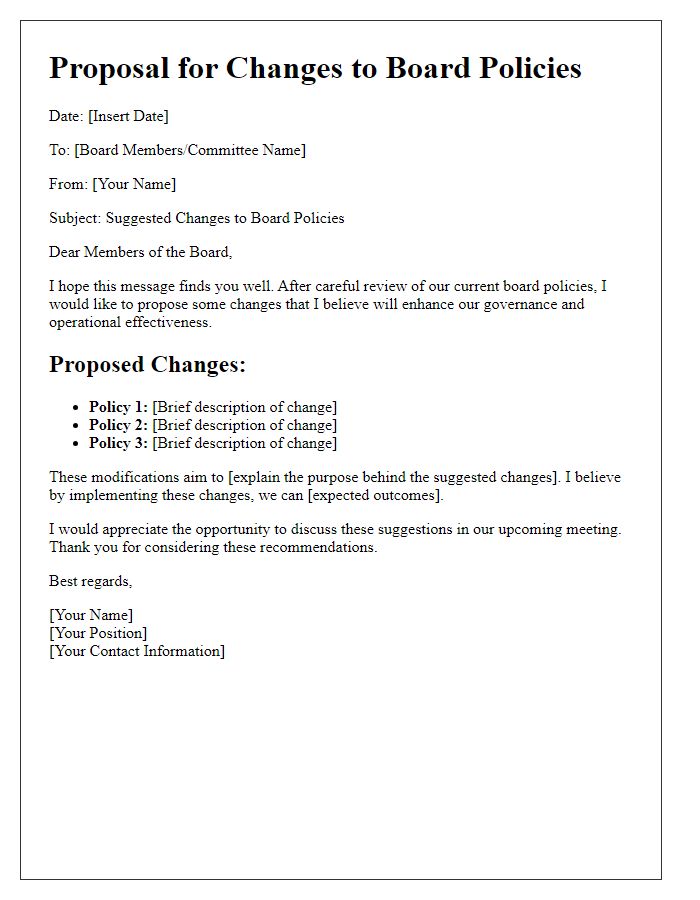
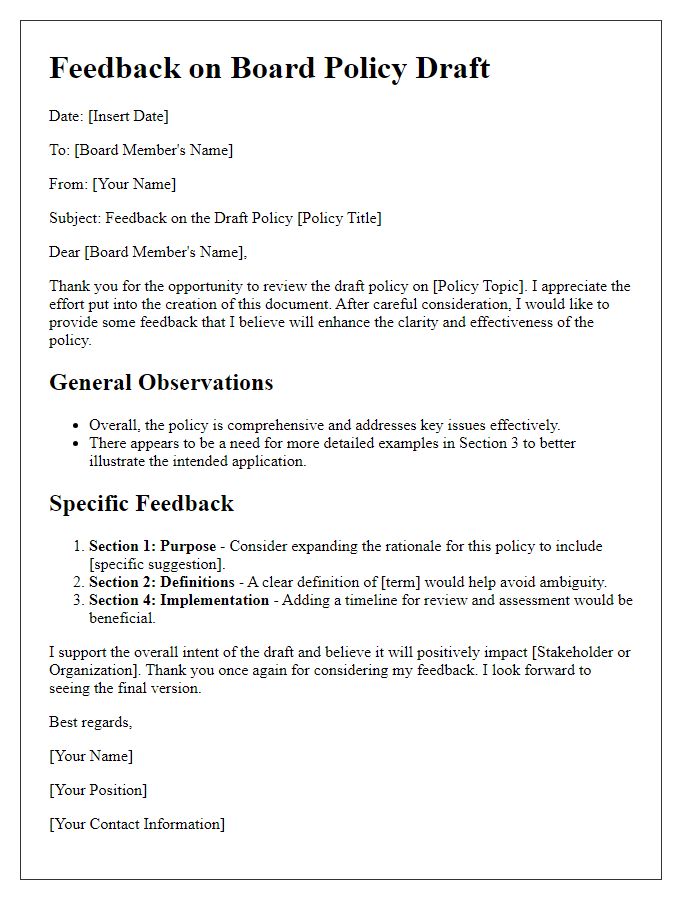
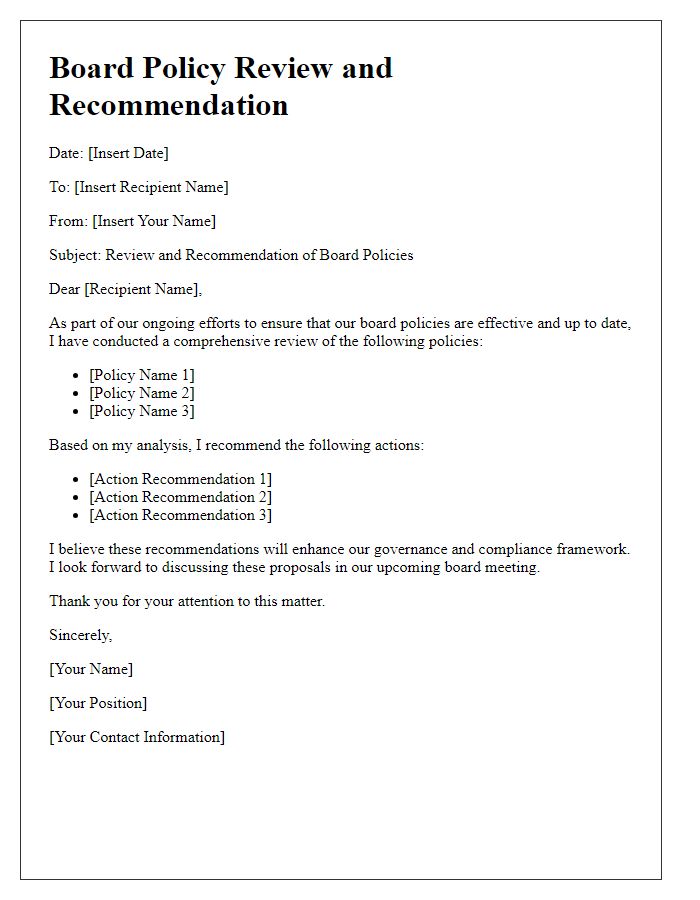
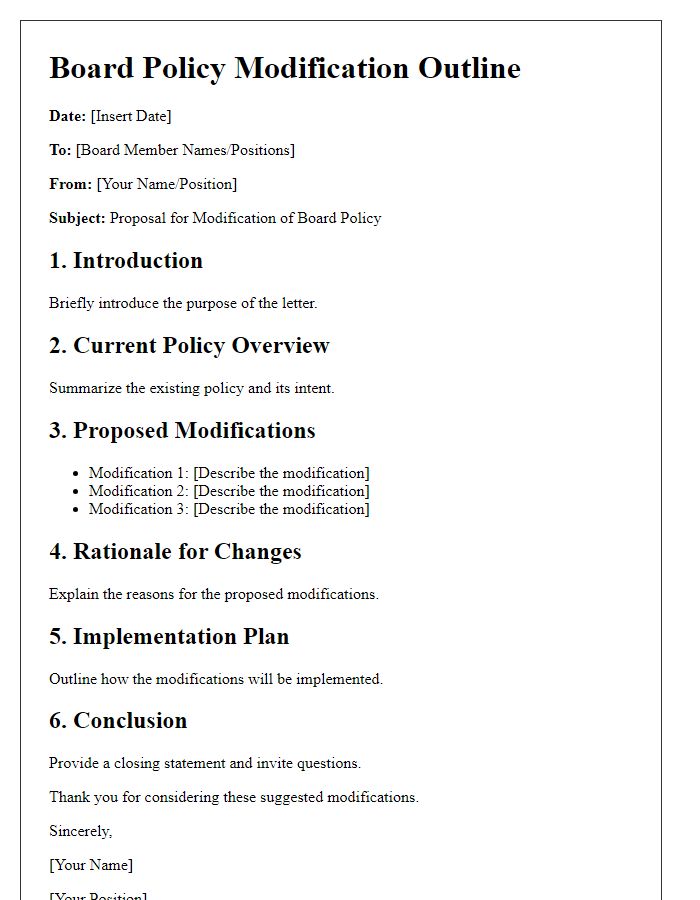
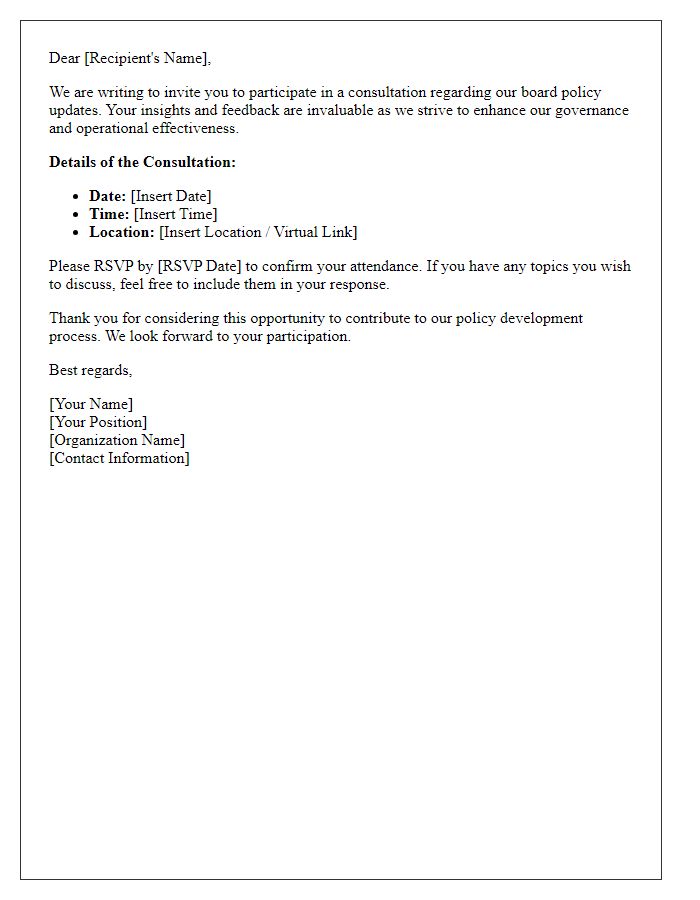
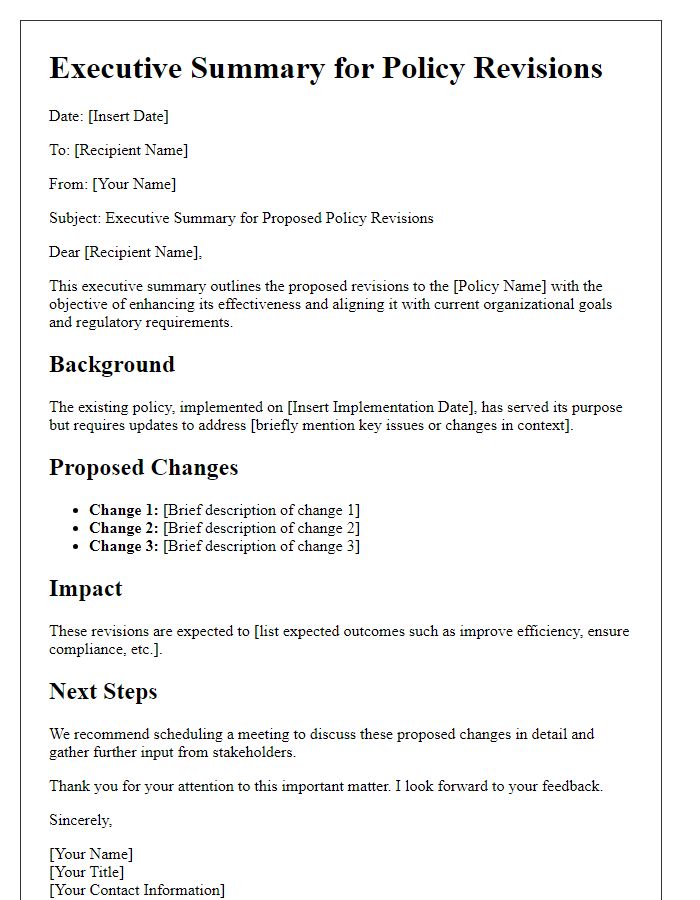
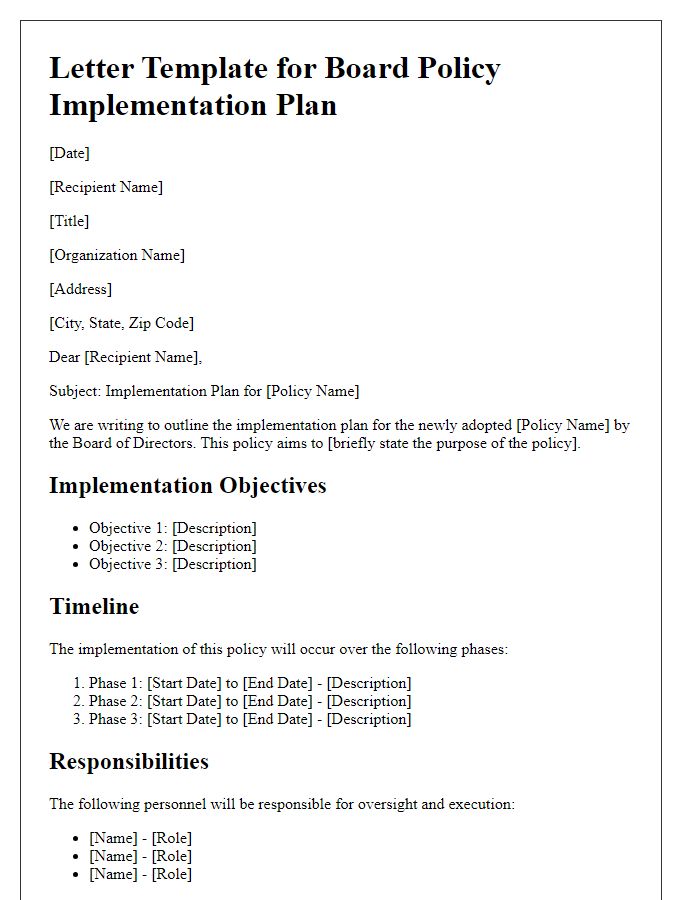

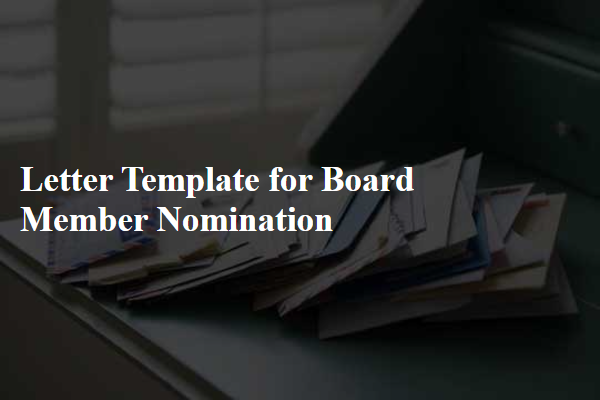
Comments